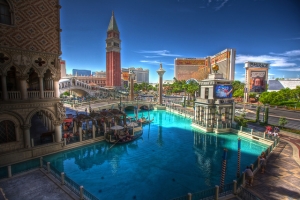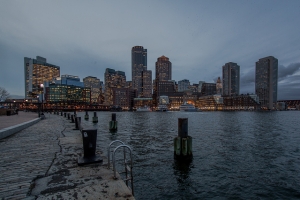Support migrant centric journalism today and donate

 • Media Center » Watch This Video
• Media Center » Watch This Video
On 01 April 2008, the gates will open for H-1B applications. H-1B visas are one of the most highly sought-after visa category for employers wishing to hire skilled foreign workers for positions in the United States. The question remains whether the landscape for an H-1B visa increase will become more favorable as America gears up for the 2008 presidential election.
Last April, United States Citizenship and Immigration Services (USCIS) received almost twice the amount of applications to fill the quota of 65,000 visas in one day. Because of this, USCIS was forced to use a computerized random selection process to fill the 65,000 places alloted by Congress. The 20,000 extra H1B exemptions for foreign Masters graduates of US universities was reached in only one month.
As most of the H-1B visas are granted for technology workers, companies such as Microsoft, Sun Microsystems, and Google have been lobbying Congress to raise the cap. They argue that the US needs foreign labor to make the US more competitive in today's global market.
Their arguments have not fallen of deaf ears, and with the upcoming presidential elections, technology companies in the US may get an ally to their cause in the Executive Office.
Both Democratic contenders, Barack Obama and Hillary Clinton, have gone on the record as being in favor of increasing the H-1B quota. However, Obama and Clinton both highlighted that general immigration reform should take precedence over a temporary measure of increasing H-1B visa quotas.
"As part of our comprehensive reform, we should examine our ability to replace a stopgap increase in the number of H-1B visas with an increase in the number of permanent visas we issue to foreign skilled workers," Obama said in an interview with TechCrunch.
"I have also supported significantly increasing the cap on H-1B visas because they are an effective tool for attracting the best and brightest to America," Clinton said in response to a questionairre sent out by ZDNet on technology-related issues. "I support increasing the H-1B cap as part of comprehensive immigration reform," she added. However, she also supported a sharp increase in H-1B visa fees, with proceeds to go towards training American workers.
As for the Republican side of the issue, John McCain, the leading contender for his party's nomination, also feels that increasing H-1B visa quotas is needed to keep America competitive. While he said he would continue supporting an increase in H-1B visas, McCain feels that the most Americans would rather clamp down on immigration.
"I will continue to support H-1B visas, but, Im telling you, the American peoples priority is, either rightly or wrongly, and we live in a democracy, is that we secure the borders first," McCain said during a technology conference in May 2007.
Having a sympathetic ear in the Whitehouse over the H-1B visa issue would certainly help, but tech companies and other interested parties will ultimately have to appeal to Congress for a raise in the cap.
Until then, the window of opportunity will still continue to be a single day for companies hoping to bring in foreign talent to the United States.





















